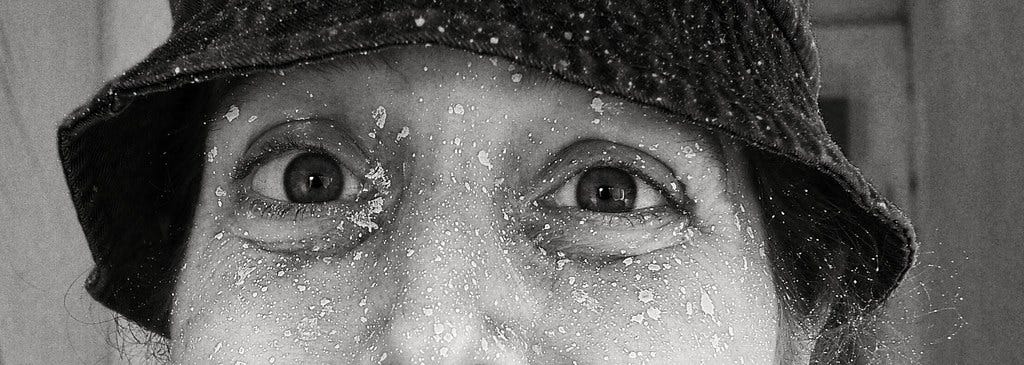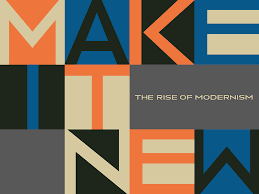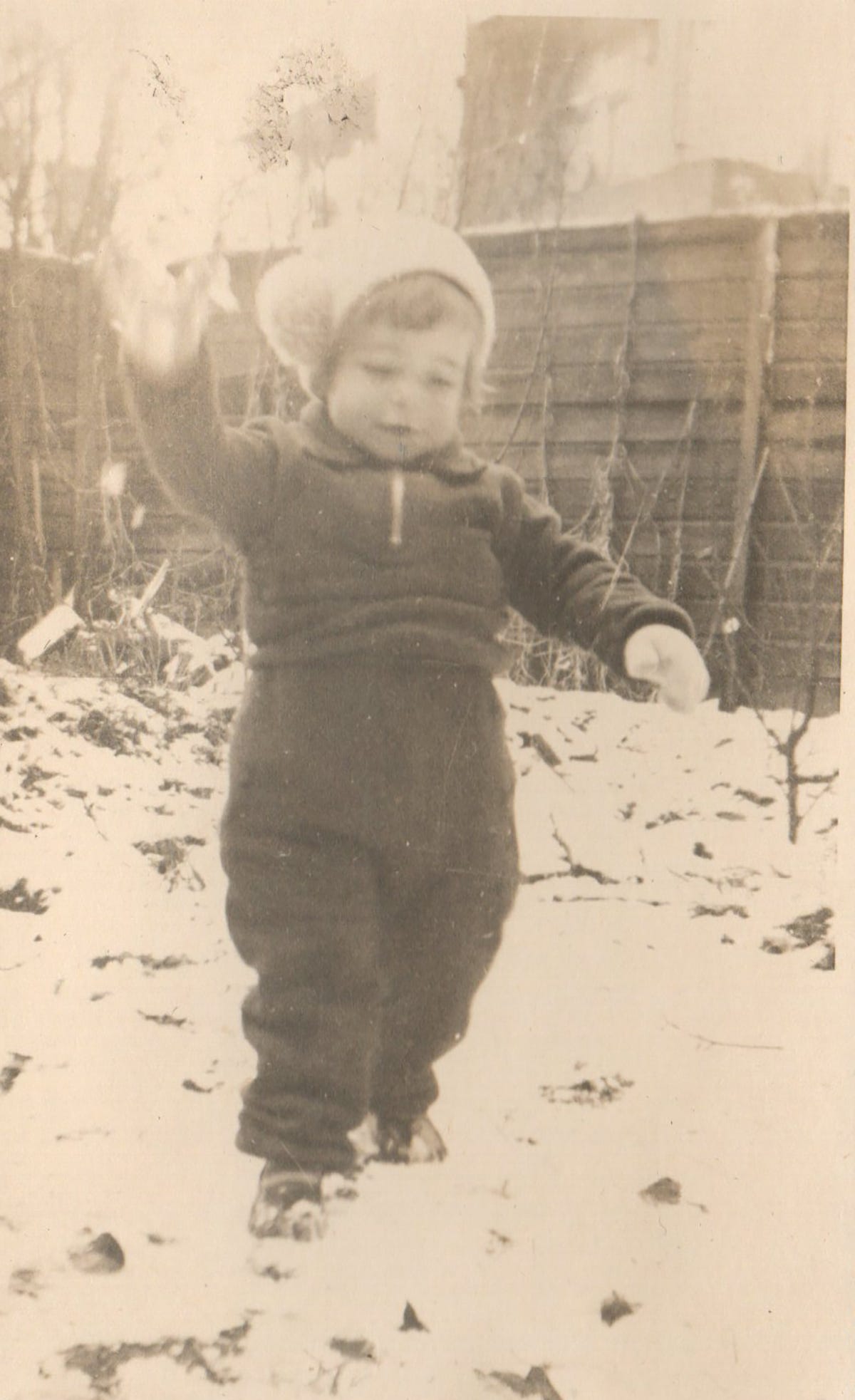Making it New (Again)
Recently, I was invited to give a reading with a local writing group as part of National Poetry Month. The other readers were 75 and 84 years old, and the majority of the attendees appeared to be in a similar age bracket.
One of the readers spoke about first discovering her love of writing in her early 40s (the age I am now) when a teacher urged her to get creative by shaking off her midlife mindset and engaging her “beginner’s mind.”
This linkage between principles of Zen Buddhism and the creative craft popularized has been around a long time, and comes up often in Natalie Ginsberg's Writing Down the Bones, first published in 1986.
In any case, over four decades, this writer explained that she had been trying every day to get herself back to that starting place again and again—sitting down to write, each time, always beginning.
I have to admit, it sounded very appealing. More and more often I find myself sitting down to write feeling too-wise and weary—convinced before I even start that this won’t work or that can’t work because last time it didn’t, or well, I tried that once before. On the one hand the experience gained over twenty-plus years of creative work is valuable, but on the other hand it can be very narrowing. I find myself longing for the early days when, because I had no idea yet what sort of writer I was going to be, I just tried anything and everything: fables, time travel, scripts, stories about math proofs, and quantum mechanics. I tried out all kinds of voices—young, old, male, female, smart, simple, cynical, joyful, mean… whereas now I sometimes will find it harder to break out of the voice I’ve come to think as my own.
On the one hand, the idea behind all that early experimenting was to figure out what worked. On the other, now that I (think I) know what works, I mostly stick with that. I don’t experiment in that same, loose way as before—why?
Listening to the poetry the writers shared at the event that night, I was struck by how often the perspective of the poem was a child's. Even in a poem with a more mature perspective, there was an attempt to defamiliarize the world.
Because we don’t want to write what’s been written before, we seek fresh metaphors, new perspectives, ways of making the everyday feel, for even just a moment, strange and new.
Back in the early 1900s, Ezra Pound, the modernist poet, adopted this as the fundamental drive in what he saw as a new art for a new age. “Make It New,” he commanded his fellow modernists, even using this as the title of his anthology. New language, new rhythms. Break the old rules. Break the old molds. Forge new souls for a new century with new ambitions. As a slogan it has that revolutionary power behind it, and continues to be a forceful energy in creative life, a hundred years later.
Interestingly, according to an article in Guernica from 2013, Pound likely appropriated the motto from 10th century Confucian texts that he'd read, about a Shang dynasty king named Ch’eng T’ang who had an inspirational phrase carved into the side of his bathtub. Translated into French first and then English, it came to Pound as something like:
“Renew thyself daily, utterly, make it new, and again new, make it new.’”
But according to the article, in that original bathtub inspiration, the phrase Pound read as “Make it new” might just as easily be translated as “Do It Again.”
This strikes me as particularly amusing, since the two interpretations are, on the one hand, polar opposites, and on the other hand, a perfect pairing for anyone creating art.
Make it new, do it again.
You need both sides of it for the work to proceed. On the one hand we’re often coming back, over and over, to a set of themes, ideas, characters, stories, words, and images that we find powerful and meaningful for us. On the other hand we have to keep trying to push beyond those, as well as finding new ways of expressing what we’ve come to think of as our focus.
“It is not enough to always tell the truth in art,” writes Charles Baxter, “The truth can get dull.”
In the beginning we all make the mistake of thinking the truth is dramatic enough on its own, Baxter argues, but as we grow into our art we learn that the truth is only dramatic when “it is forgotten first.”
Baxter refers writers to the work of Victor Shklovsky, who believed that defamiliarizing the familiar was essential to making readers see things again, for the first time. In a sense it is a way of bringing the beginner’s mind to them, and tricking them into reconsidering what they think they already know.
“We must make the strange familiar,” he writes, “and the familiar strange.”
Eventually, I got up to read my own piece, an excerpt from my novel, and I realized that of course the perspective I wrote from was a child's also—my imagined version of my 87-year-old grandmother, Oma, as an 8-year-old child—and that the writing was all pushing towards defamiliarizing: the bubbles in sourdough look like constellations of stars, the dune grass she passes may contain hidden fairies, the eels she catches in the river are grotesque and magical leviathans.
Through her child’s eyes, everything is new and exciting and discoverable. The world around her has changed dramatically in a short time because of the Nazi occupation, and she is puzzled by her neighbors, her own family. She’s curious about everything, and so much is hidden all around her. No wonder, I thought, that it was so much fun to write—without even thinking about in those terms, I was doing “beginner’s mind” the whole way along.
I've always loved writing from a child's point of view—though this was also one of the very first things I remember being scolded about in workshops. I was warned against writing Salingerian child-genius types, and even told once by a professor that my child protagonist was incredibly irritating, “like all children are”—this delivered with a heavy groan. Just the thought of children was annoying to her.
Later, when I began writing a novel about younger characters in a boarding school, inspired by great literary work I’d read by Pynchon and Barthelme, I was told that I was “doing YA” and that this was not the sort of work I was expected to be doing in the program. Never mind that, in my classes, I’d been assigned any number of books in the program that focused on the experiences of children: Great Expectations, Catcher in the Rye, Kim, The Plot Against America, etc, etc, etc. (Three years later I read, with amusement, the flap copy on her own new novel, which was about a young girl growing up in Brooklyn.)
This, by the way, a perfect example of the kind of “wisdom” I’ve earned in my years of writing, which I would happily cut, Severance-style, from my mind—and certainly now will make a conscious effort to block out when I’m sitting down to start something new.
In workshop, as I like to say, we don’t just learn how to accept feedback, we also learn how to sort out those opinions that aren’t useful, or which we even actively want to write in opposition to.
A child is, by nature, a beginner, and so by getting into their mindset on the page, we are allowing ourselves to proceed with that beginner’s mind ourselves. A child does not yet have the full framework or vocabulary for understanding their worlds, like an adult might (or might think they do). And so anything can be an occasion for wonder, for strangeness. They don’t even need to defamiliarize the world around them, because it hasn’t yet become familiar. It isn’t made new, it is new.
In a story about adults, I often find myself asking, “What's the inciting incident?” Why is this story beginning on this day? It has to be because something out of the ordinary has happened, something new or unfamiliar needs to have occurred.
In my life as a 42 year old, I struggle to think about what constitutes a “new” event most days. How often do I find myself truly surprised? Unsteady? I experience uncertainty all the time, but it's mostly to do with what might happen in the future, not what's happening in my present. An adult life (mine anyway) is built on routines, schedules, budgets, calendars.
Usually the “new” is literally coming in via the actual news—in which we get reports on what’s going on in the world (much of which feels to me today like the same, very un-new nightmare we’ve been in since at least 2016) or via social media where everything is an unending torrent of new—new jokes, new memes, new trends, new hot takes, new cooking videos, new dog videos—but all of which also begin to feel, after a while, like more of the same. Still the addiction to it is real—all pegged on the hope that the next article, the next video, will be something truly new.
More and more now, we’re trying to think of other ways to find the new. Can we look closer at the routine stuff of everyday life in order to uncover its hidden complexities and connections? (This is another Buddhist concept, popularized lately, of mindfulness.)
Or can we travel, or even wander? Hike a new trail, spin the radio dial, cable surf. Strike up a conversation with a stranger? Can we push back in our memories, digging new things out of the past, remembering things we’d briefly forgotten about? Or can we engage our imaginations and focus on what could be different, or who else we could be, or what might have happened another way, or what might happen later?
There are plenty of different directions to go in, as it turns out, when it comes to making things new, again.
Mostly it just takes a little effort to shake off the illusion that we already know everything—to adopt a child’s attitude towards the world for even a short while.
After I was done reading at the poetry event I sat there for a while longer, listening as the hosts opened the mic up to the attendees, mostly also much older than me, all approaching the podium with a kind of childlike wonder, and reading their work to the crowd with all the enthusiasm and freshness and fear of a third-grader summoned to deliver their first poem in the school auditorium.
To do this after living so long, coming to know so much, experiencing decades more than me and to then approach their work still, then, as beginners… it strikes me as the best possible way forward for any of us.






